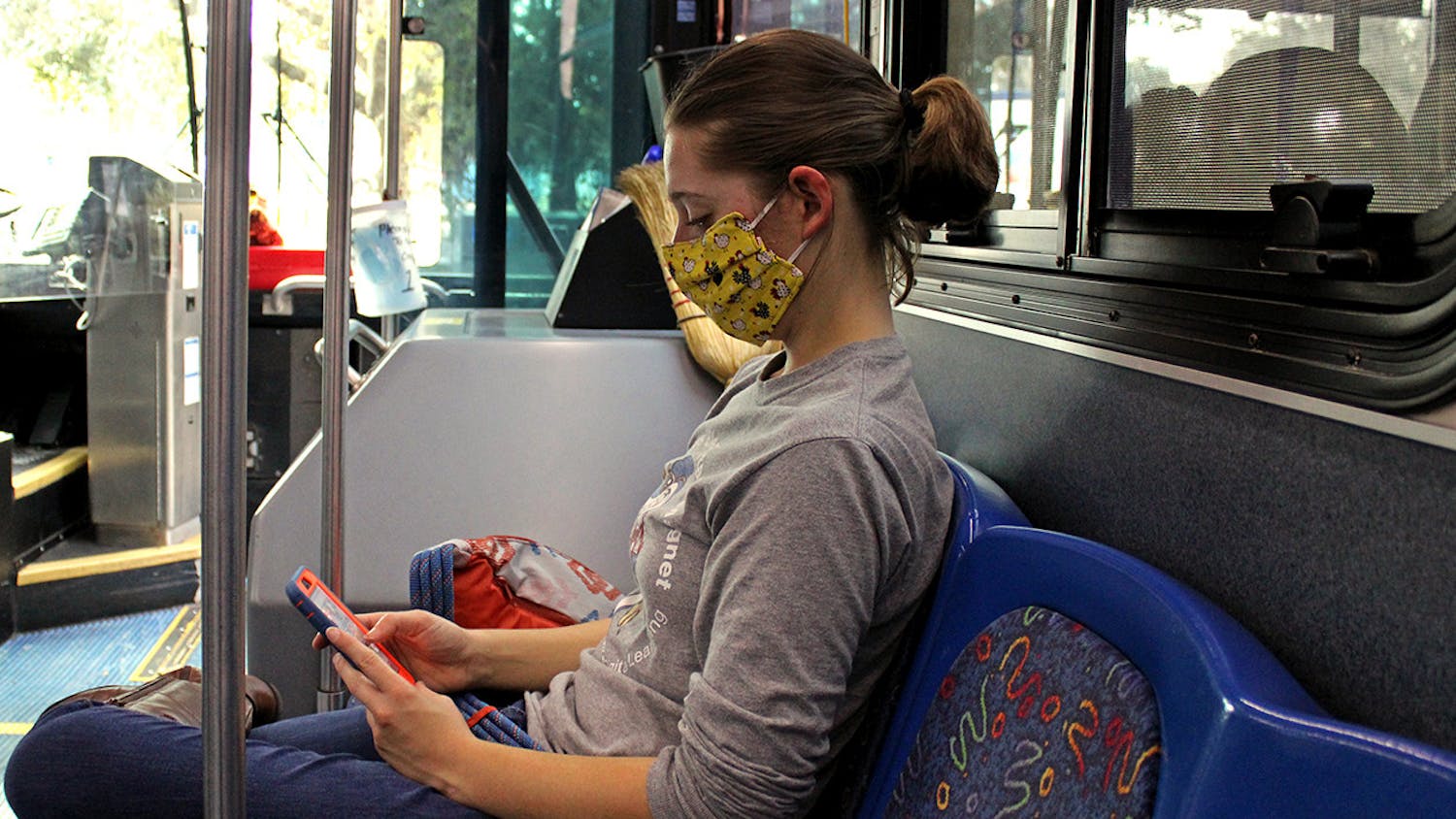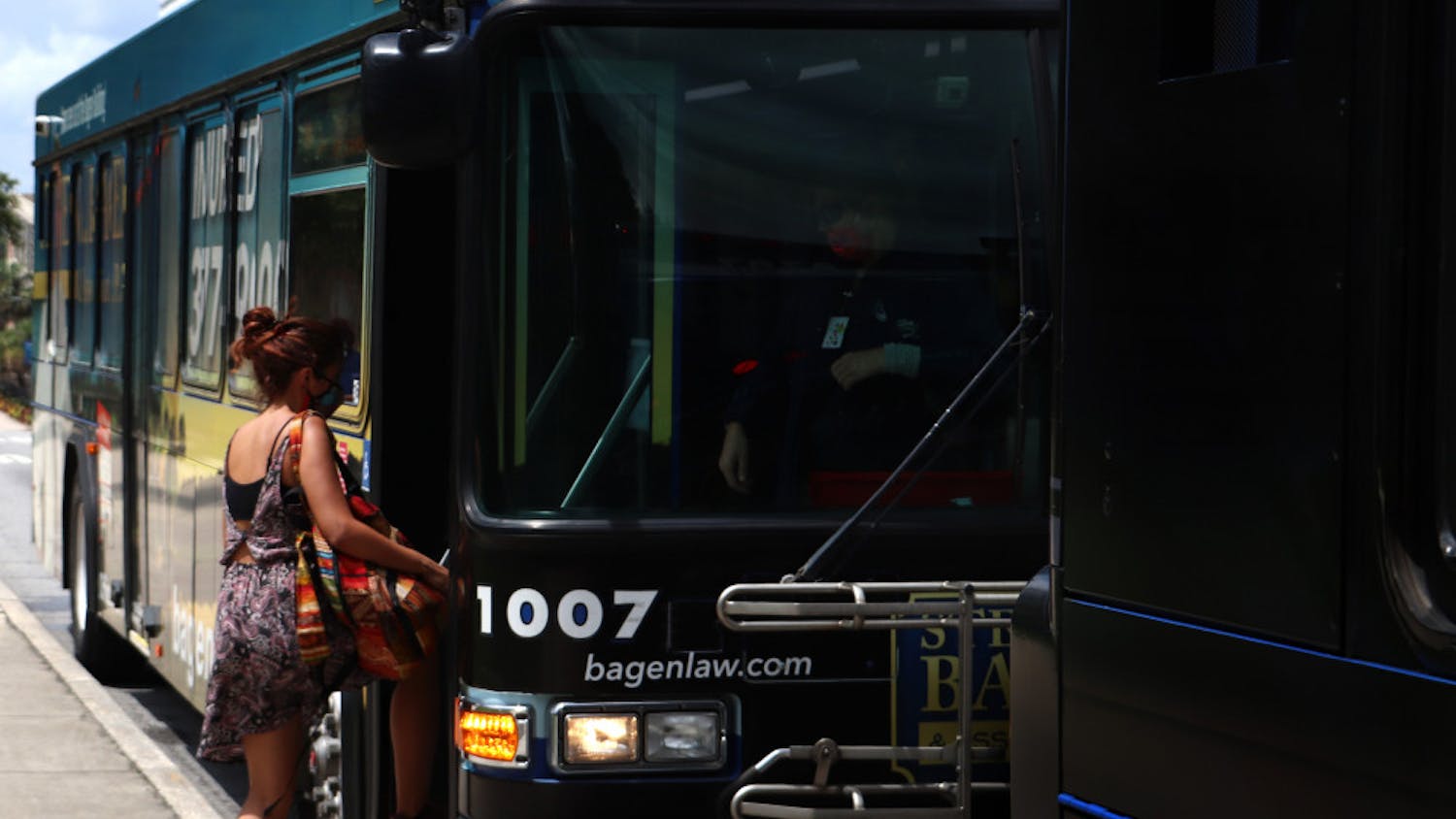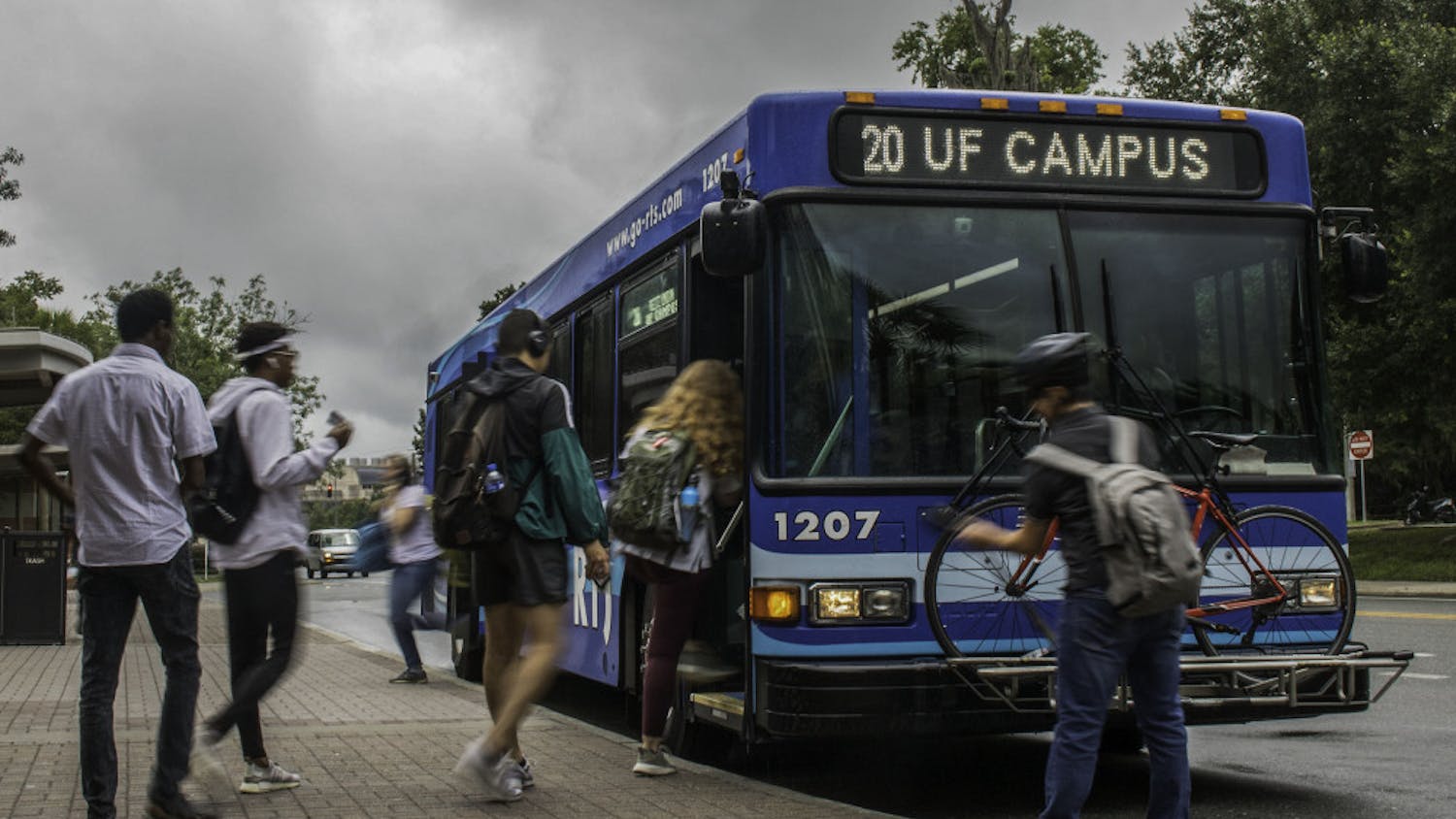Residents of the Sunshine State — particularly millennials — are driving less, and Gainesville residents are reflecting the trend.
A recent study by the Florida Public Interest Research Group Education Fund found that the number of miles Floridians drive is down by about 11 percent since 2005.
The change in the number of miles logged per person is more than the the change in the national average, which was about 7 percent, according to a news release.
Dalyn Houser, an associate with the research organization that conducted the study, said the findings are interesting because they show that a decrease in driving isn’t linked to the 2008 economic recession.
According to the study, driving rates have been declining for eight consecutive years in 46 states. During that period, only six states saw faster-than-average increases in unemployment as driving decreased.
“If (the recession) is over, it’s not just going to go back to normal,” Houser said. “It doesn’t matter that we had an economic downturn. It doesn’t matter that fuel costs are rising. The implication of this is that policymakers need to wake up and support policies that will lead to more public transportation in the area.”
She said millennials make up about 30 percent of the U.S. population, and they are the group policymakers need to focus new policy decisions around.
The generation is driving about 25 percent less and using public transit 40 percent more than their counterparts eight years ago, according to a Florida Public Interest Research Group Education Fund study.
“These people are the ones that are choosing not to drive, and that is what’s causing this driving boom to be over,” she said.
Although Gainesville is still prone to traffic jams, many students and residents are choosing not to drive and instead use alternative modes of transportation.
Ron Fuller, assistant director of UF Transportation and Parking Services, wrote in an email that parking decal sales for the UF campus are down almost across the board.
The only annual passes that saw an increase from 2011 to 2013 were motorcycle and scooter decals, which increased by about 8 percent.
The local bus system reflects a similar pattern.
Regional Transit System has seen ridership numbers almost double in the last decade from about 5.2 million in 2000 to an average of about 10 million a year in the last few years, according to RTS ridership statistics.
During the first five months of this year, there were about 4 million passengers, according to the ridership data.
Looking toward the future, Houser said as millennials choose to drive less, they will also be the driving force to ensure money goes toward improving public transportation.
Twenty-one-year-old Maria Pazos said she mostly walks and takes the bus because she doesn’t have a car. But the UF English senior said she wouldn’t give up those habits even if she did have her own wheels.
She also said she understood the trend of driving less, and she hopes cities like Gainesville will put more effort into improving public transportation.
“Besides the environmental effects, we are definitely dependent on (driving),” she said. “But in a city like Gainesville, where there’s plenty of public transportation, there’s no reason not to take advantage.”
A version of this story ran on page 8 on 9/4/2013 under the headline "Gainesville residents slow down on driving miles, follow state trend"





